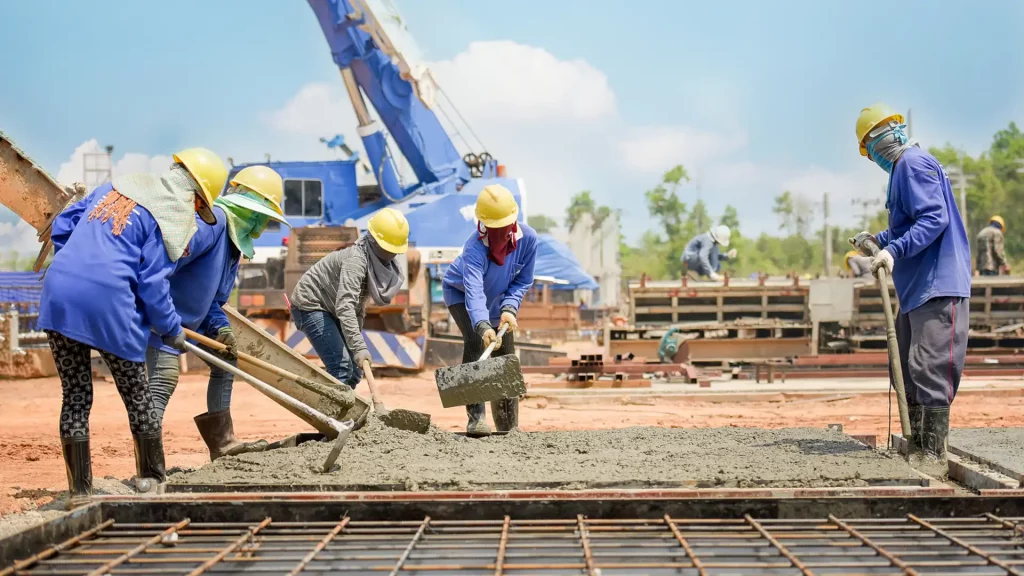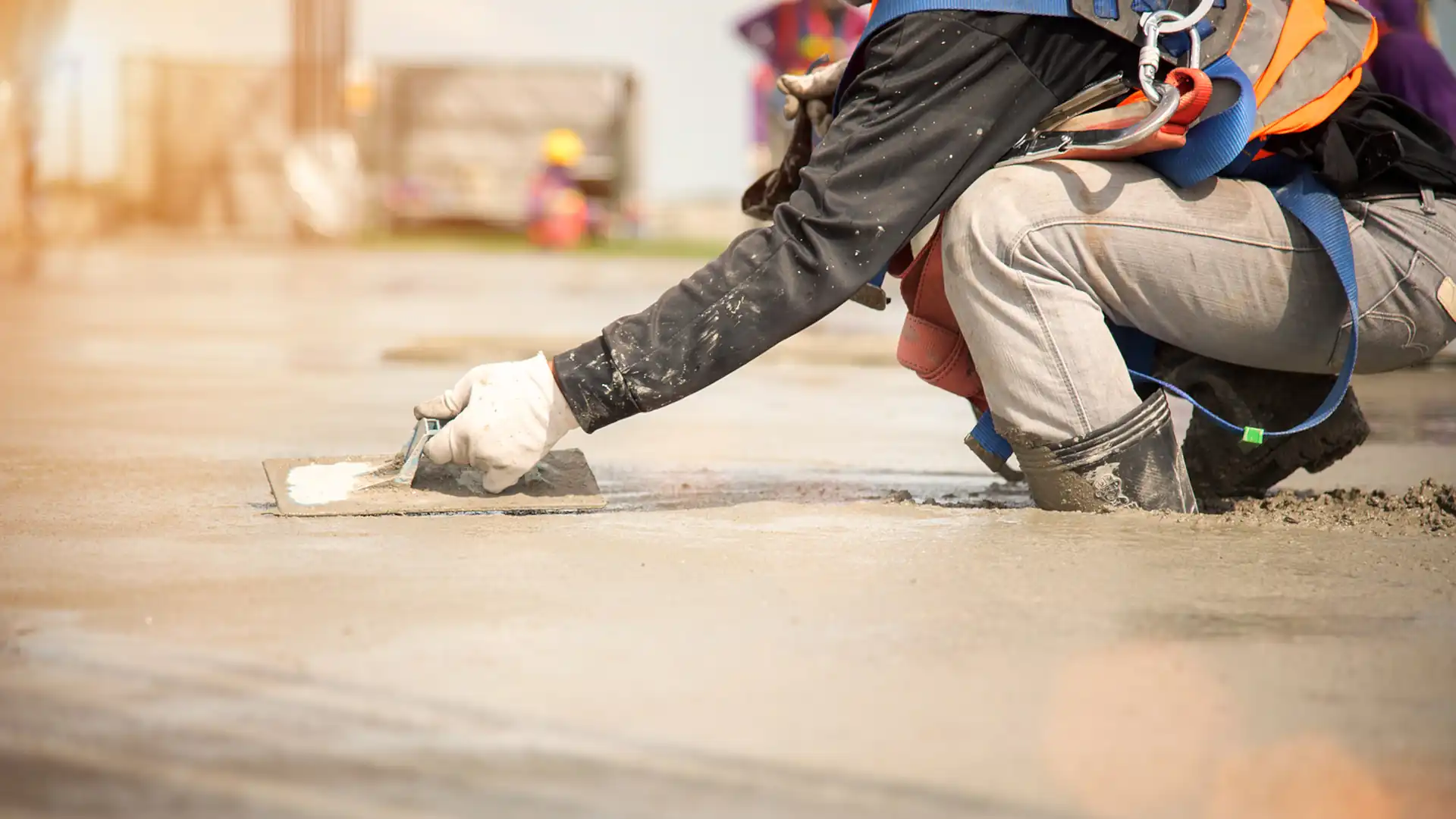Concrete does a lot of things. It forms the backbone of countless construction projects, stabilises skyscrapers, and creates pavements for pedestrians to walk across cities safely. But in a city as rainy as Auckland, there’s a vital question many people are asking: can concrete be poured in the rain?
Short answer? Yes, as long as the right civil construction safety protocols are observed. For a longer answer, read on as the TSL crew breaks down some of the best practices we observe as asphalt contractors in Auckland.
The Impact of Rain on Freshly Poured Concrete
To understand how rain can impact freshly poured concrete, we first must answer the question: what is concrete, anyway?
Concrete isn’t one thing; it’s many things. In civil construction services, we call it a ‘composite’, which essentially means it’s a few different materials bonded together in cement. Usually, sand or gravel forms the solid part of the aggregate mixture. The cement cures to a solid over time, with the liquid evaporating into the air and leaving a hard block behind.
This is where it gets interesting. As fresh concrete is being poured, rain can dilute the ratio between water and cement. As with anything diluted, the concrete mixture weakens the mixture, leading to a weaker final product. Even after the mixture cures, the resulting concrete can have a delayed settling time, compromised strength, and a chipping or flaking surface layer. In other words, the pour is compromised, and the concrete is not as strong or durable as it should be.
Civil Construction Precautions for Pouring Concrete in Rain
With all of that said, some careful planning and execution can allow crews like ours to pour concrete in rainy weather without sacrificing quality. To maintain long-term civil construction safety, here are the essential steps we take when heavy rain hits Auckland.
Monitor the Weather Forecast
The best solution to pouring concrete in the rain is not to do it in the first place. While this can be tough in New Zealand, it’s always vital for our crews to check the weather forecast and plan any fresh pours as carefully as possible. Heavy rain usually means we have to postpone the work to prevent any major issues, but light rain is fine to work in if we follow the right protocols.
Properly Prepare the Site
Even if the concrete is under cover, it should never be poured into trenches filled with water or onto wet surfaces, as the excess water will compromise how the concrete settles and cures. Site preparation includes ensuring proper drainage to prevent water pooling and using plastic sheeting to cover freshly poured concrete in case of rain.

Modify the Concrete Mix
Once concrete has cured, it is much less vulnerable to rain. However, that process can take anywhere between 6 and 8 hours. Where applicable, we might add admixtures that accelerate the curing process of the concrete. This helps the concrete set more quickly than usual, reducing the time it’s vulnerable to rain.
Use Concrete Pumps
Finally, the faster the concrete makes it from mixing to its destination, the better! On-site, we’ll often use a concrete pump or mixer to minimise the distance freshly mixed concrete needs to travel. Not only does a pump allow for precise placement, but it also ensures our crew can reduce any rainwater mixed into the solution during transport. We will also ensure the concrete is properly cured, the surface carefully finished, and the final results thoroughly inspected before work is complete.
So, when all is said and done, can concrete be poured in the rain? Well, pouring concrete in the rain does present challenges. However, an experienced crew like ours can absolutely accomplish this safely. By monitoring the weather, protecting the site, and ensuring proper curing, you can rest easy knowing that your construction project will remain strong for years to come.
Get in Touch With us for Expert Civil Construction Services.
At TSL, we take civil construction safety extremely seriously. From observing precautions while pouring concrete in the rain to managing other hazards while on-site, our team of asphalt contractors in Auckland is ready to deliver the best results. We are committed to providing safe, reliable services tailored to your project’s specific needs. If you’d like to learn more about how we can help with your project, enquire with us today to discuss your requirements.


